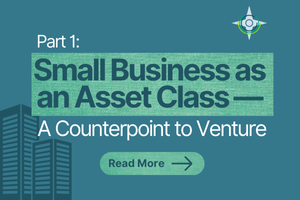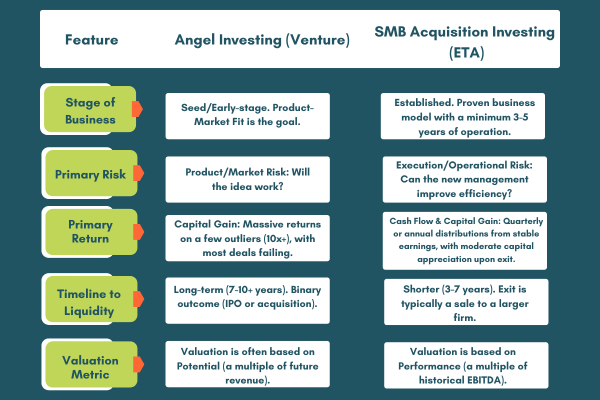 In the United States, the term "private markets" has long been synonymous with venture capital (VC) and high-growth, early-stage technology startups. However, a parallel, historically less-accessible category of private investment is gaining traction for its potential as a diversifier: the acquisition of Small and Medium Businesses (SMBs).
In the United States, the term "private markets" has long been synonymous with venture capital (VC) and high-growth, early-stage technology startups. However, a parallel, historically less-accessible category of private investment is gaining traction for its potential as a diversifier: the acquisition of Small and Medium Businesses (SMBs).
This trend is part of a broader democratization of private markets, where new structures are enabling individual investors to participate in deals previously exclusive to large private equity funds or single owner-operators.
What is SMB Acquisition Investing?
SMB acquisition investing focuses on purchasing established companies with a proven business model, existing revenue, and reliable cash flow. These companies are typically found in the "lower middle market" and include businesses that form the economic backbone of local communities:
- Essential Services: Plumbing, HVAC, electrical, and other home/commercial maintenance.
- Specialized B2B: Niche manufacturing, local distribution, and technical services.
- Healthcare/Wellness: Dental practices, veterinary clinics, or elder care facilities.
The core strategy is Entrepreneurship Through Acquisition (ETA), where an experienced operator (sometimes called a "Searcher") acquires the business with investor equity and significant bank debt (often via an SBA 7(a) loan). The goal is to optimize operations, hold the business for the long term, or to hold for a shorter term – 4-8 years – and sell it to a larger financial or strategic buyer.
The opportunity is massive, primarily fueled by the "Silver Tsunami": the projected transfer of trillions of dollars worth of these businesses as Baby Boomer owners retire, often with no internal succession plan. This demographic reality has created a supply shock that professional operators are rushing to meet.
Contrasting SMB Acquisition with Angel Investing
For those familiar with early-stage venture, the SMB acquisition model presents a completely different risk, return, and time-horizon profile.

This distinct profile is the reason individuals seek it out: its returns are often uncorrelated to the volatile, speculative nature of the technology startup ecosystem, offering true diversification within the private asset space.
Upcoming Educational Webinar
To deepen your understanding of this asset class, we are hosting a webinar focused entirely on "The Emerging SMB Asset Class".

